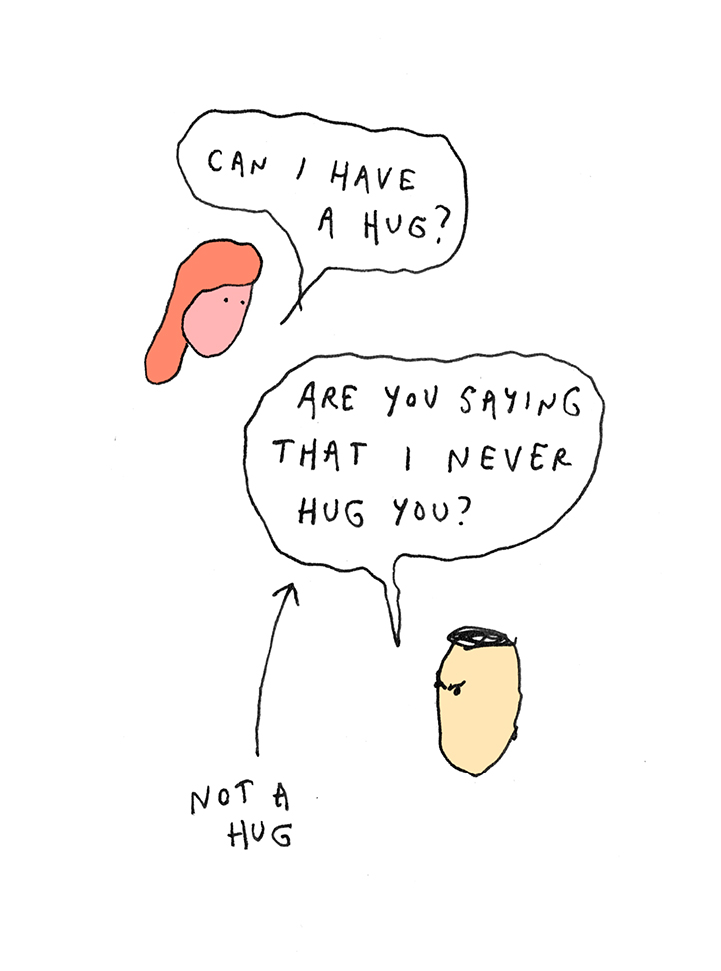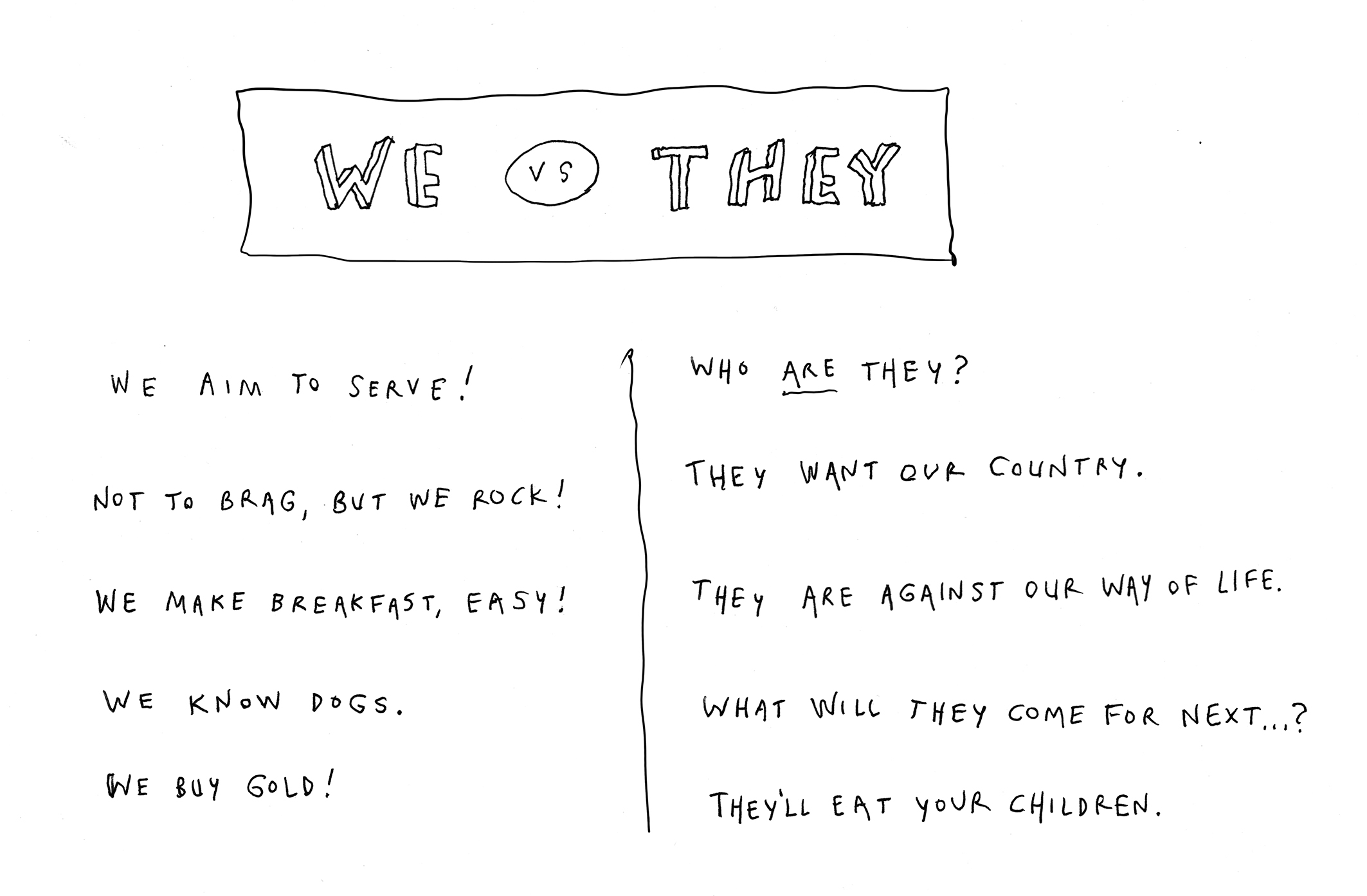New York City, October 29, 2017
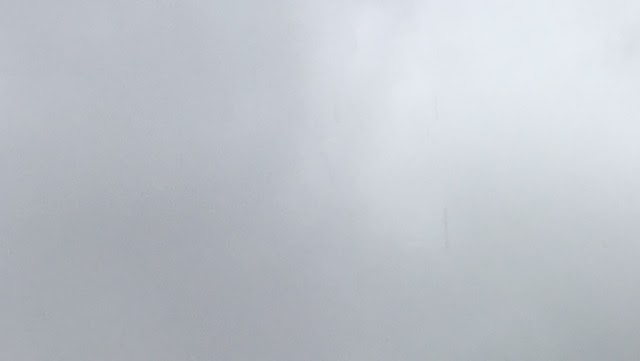 ★ The palpably rising humidity at bedtime had become audible rain before sunrise. It was a slow splashing rain on the walk to the nearest, unappealing supermarket to get eggs. A small poodle in a raincoat high-stepped through the wetness; some smaller and silkier breed, also in a raincoat, huddled in a person’s arms under an umbrella. The rain abated for a while, then came back as still ordinary weather. Hour by hour the drops on the window grew bigger and more numerous. With the blinds down to watch a movie, early afternoon felt like night. There was nothing useful left of the day, regardless. Eventually, in the night, the real storm began heaving and groaning.
★ The palpably rising humidity at bedtime had become audible rain before sunrise. It was a slow splashing rain on the walk to the nearest, unappealing supermarket to get eggs. A small poodle in a raincoat high-stepped through the wetness; some smaller and silkier breed, also in a raincoat, huddled in a person’s arms under an umbrella. The rain abated for a while, then came back as still ordinary weather. Hour by hour the drops on the window grew bigger and more numerous. With the blinds down to watch a movie, early afternoon felt like night. There was nothing useful left of the day, regardless. Eventually, in the night, the real storm began heaving and groaning.
Overthrow American Poetry
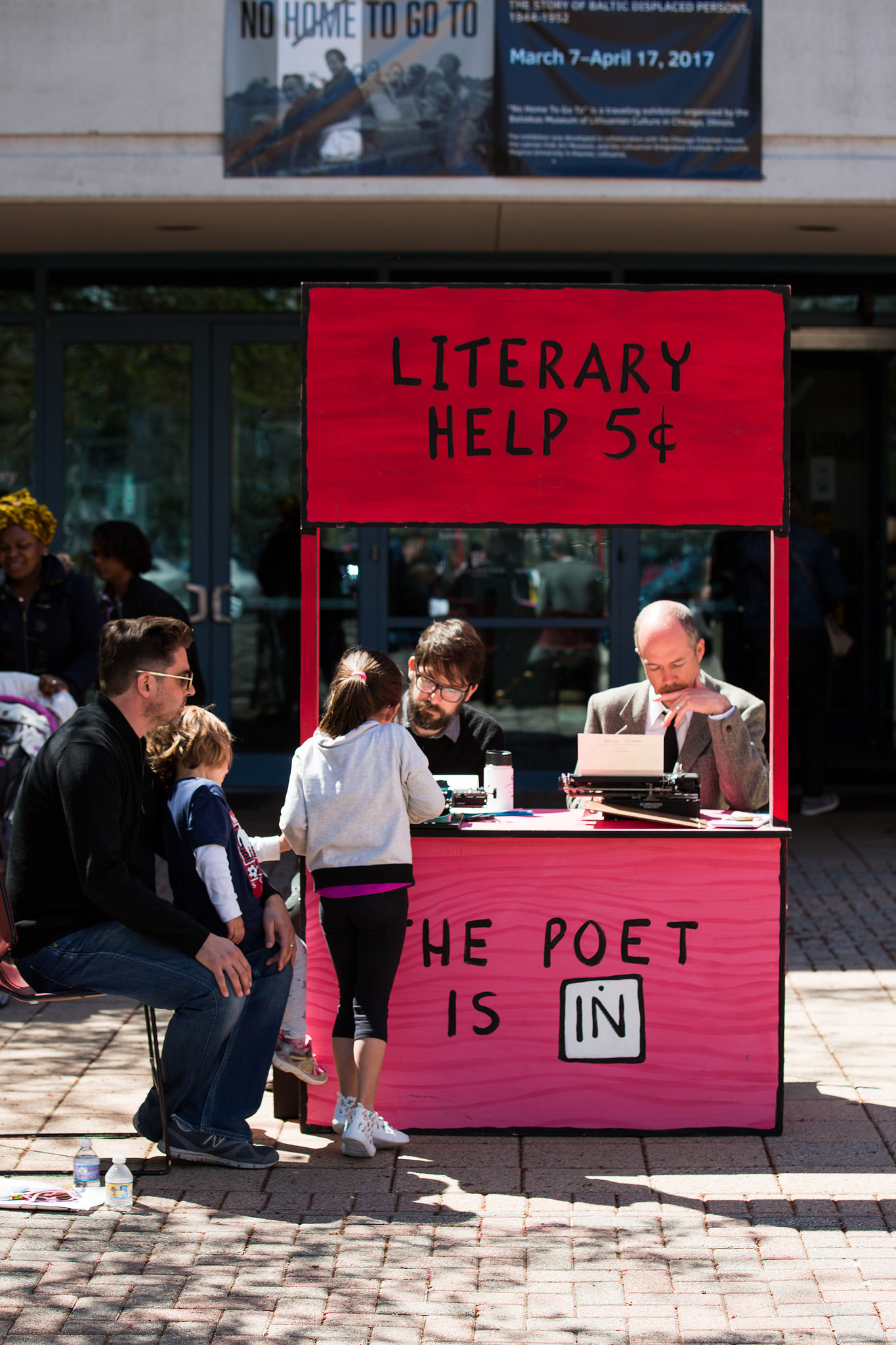
Image: Arlington Public Library via Flickr
“I would like to become a poet like you but I’m afraid I won’t be able to support myself. What should I do? —Bob the Broke Poet
Poets once made themselves ubiquitous at Occupy Wall Street and the various Occupy Movements around the country. Happily so. Like many people across our great swath of land, poets know that the current American Economic system doesn’t serve them. It serves banks and gigantic mega-global corporations. Poets don’t need banks, they need ham sandwiches. We’re just the human batteries inside their matrix. In the same way that Charlie Brown of “Peanuts” fame is the Charlie Browniest, If there’s anyone in the 99% getting the long hard screw, poets are the 99%-est. So chant and carry signs and read your poems at protests, poets. It’s all good.
American Poetry relies on the lie that if you work hard and pay into the system, good things will happen for you, too. Chances are, no good things will ever happen to you in this art or any art. The Traditional American Publishing System simply is not interested in Poetry in any real way. The big houses select a few poets apiece, continue to publish them over the course of their careers and hope they acquire an audience. Put the right cover and the right blurbs on a book of anything and then put it in every chain bookstore in America and you’ll sell an OK amount of books before you have to pulp them and turn them into a mystery paperback. Just because a book is published by a big publisher or well-blurbed, it doesn’t mean it’s any good. Right?
Who Haunts The Haunter?
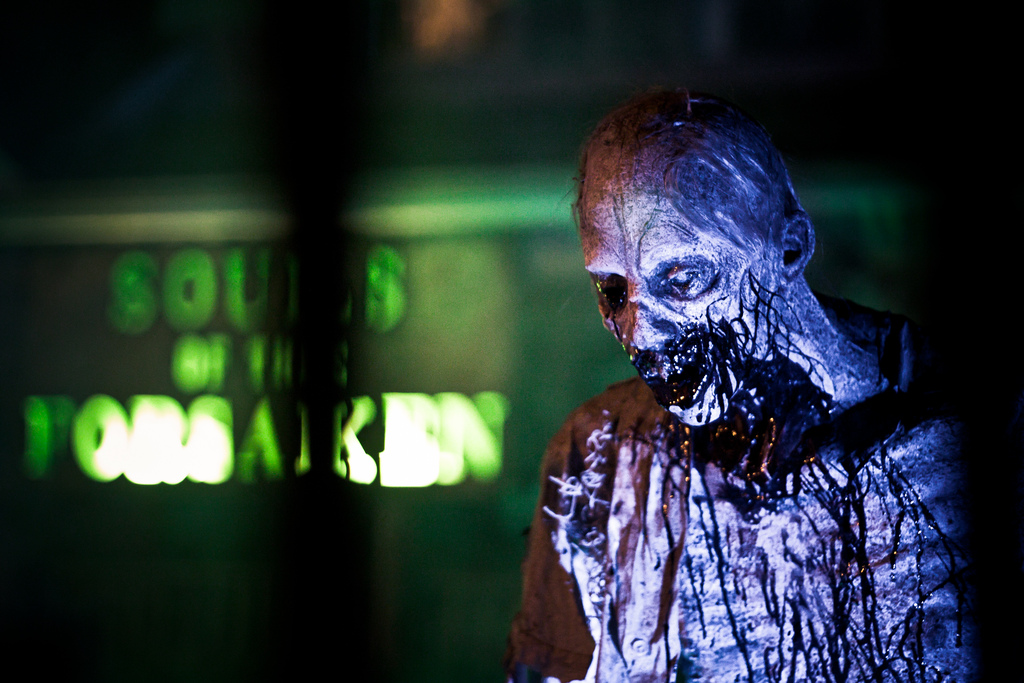
Image: Kevin Tao via Flickr
“Blair” [not her real name] is a veteran of over 10 years of working as a “scareactor” in a variety of corporate Halloween haunts throughout the country. I asked her what that’s like. This interview has been condensed and edited for clarity.
![]()
“The auditions are like this: You go in as a group, maybe 30 at a time, and they’ll ask you one question. The answer doesn’t matter, it’s how you answer. “What’s your favorite scary movie?” You could say Goonies, Jaws, Hellraiser 14, but it all depends on how comfortable you are being put on the spot. If you’re awkward, they’ll cut you.
Then, you have a death scene. One time, a director went down the line with a finger-gun and went “bang,” and you fake your own death. What they’re looking for is not what you do, so much as the choices you make. If you’re screaming, are you blowing out our lungs? Are you unsafe? Are you throwing yourself on the ground, and damaging the costume or maybe breaking a bone?
The final step is they’ll play music, something that gradually builds, and the director will coach the room. “You’re walking, you feel sick, really sick, you fall over, die, you’re re-animating, you’re turning, you’re a monster, you’re starving, you’re ravenous!” They talk people down, and raise them up, and by the end you’re running like crazy. But if you make an unsafe choice, or look like you’re not having fun, or are laughably spooky, they cut you.
Penguin Cafe Orchestra, "Nothing Really Blue"
Weren’t we just here? Wasn’t it moments ago that we were waking up to a new week, full of dread and barely able to drag ourselves to the starting line? Didn’t we just complain about how exhausted we were and wonder how much more we could take? I guess the good news is I can copy and paste this exact block of text over and over again until it finally all comes down, because we live in a world where it’s always like this now. Here’s some music. Enjoy.
New York City, October 26, 2017
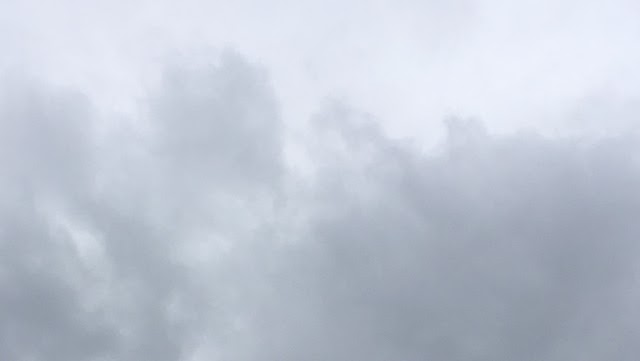 ★★ The gathering daylight revealed that the deep blue of the dawn sky had been the blue of thick clouds. A peachy glow strengthened in the distance beyond and below them. Midday stayed dark, but agreeably cool. The sun never got a chance to do much, and by the time the clouds were gone, the coolness had sunk to uncomfortable chilliness. In the shadowy side street, a piece of trampled foil was filled with improbable amounts of brightness from the retreating light in the sky.
★★ The gathering daylight revealed that the deep blue of the dawn sky had been the blue of thick clouds. A peachy glow strengthened in the distance beyond and below them. Midday stayed dark, but agreeably cool. The sun never got a chance to do much, and by the time the clouds were gone, the coolness had sunk to uncomfortable chilliness. In the shadowy side street, a piece of trampled foil was filled with improbable amounts of brightness from the retreating light in the sky.
Banker Street, Brooklyn
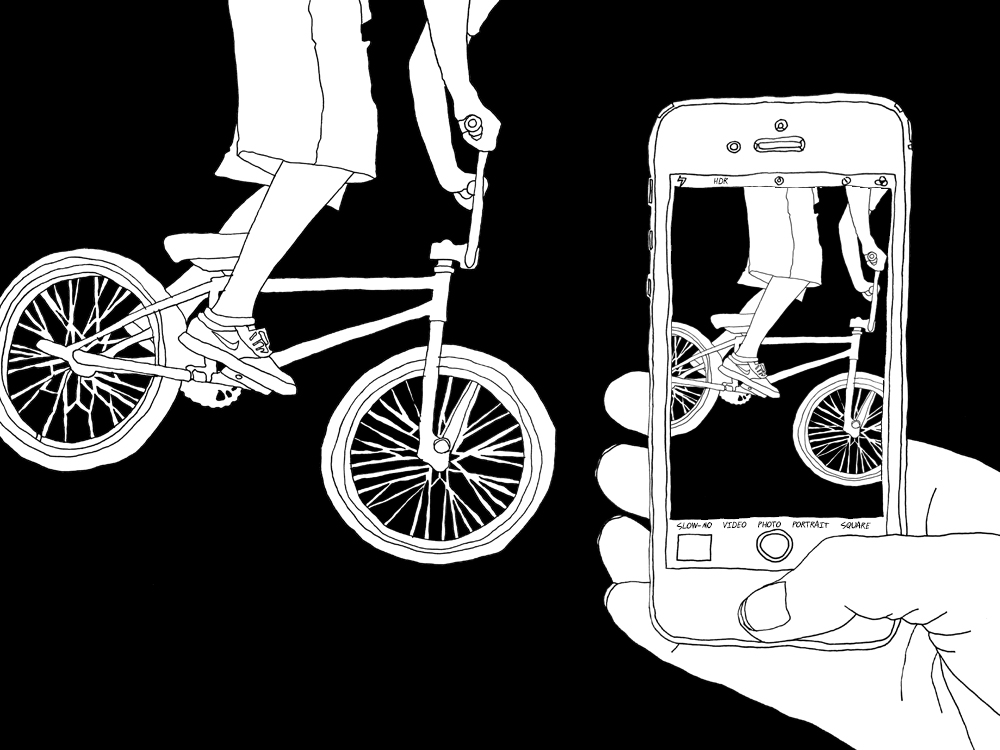
Illustration: Forsyth Harmon
Maybe every metropolis can do this, maybe, as with dog owners who believe their dog to be the most-beloved and special among all dogs, this is just the New Yorker’s delusion of exceptionalism: but, does any other city do human irruptions like this? An aromatherapist once told me it’s tectonic. She said this matter of factly and I liked the idea of using the word as a catch-all explanation for your phenomenon of choice. A term up there, in this sense, with “hormonal.” Applied to New York though, “tectonic” was especially appealing. I liked the idea that the crackle on the streets on a sunny but crisp Saturday in late October had some chthonic source, one very vaguely scientific, but mostly mystical. I liked the idea that psychogeography could have a fount, invisible but earthy. I liked the idea that it wasn’t all just caffeine and collective myth-making.
It was golden hour, and the cafe that was also a radio station in an empty shipping container in a formerly empty lot—because yes, this was indeed north Brooklyn—had become a bit of a scene. Everyone was wearing sunglasses, which was justifiable—the light was low and bright and horizontal—but that funny thing was happening when you can tell that people are looking at each other even as you can’t actually see their eyes, that covert scoping that should be undetectable and yet is somehow obvious. Maybe it’s revealed by the way a person holds their head, some minute physical adjustment there. Or perhaps it’s inexplicable, a sixth sense. By which I mean maybe it’s just tectonic. Human tectonics.
White People: Colin Kaepernick Costumes Are A NO
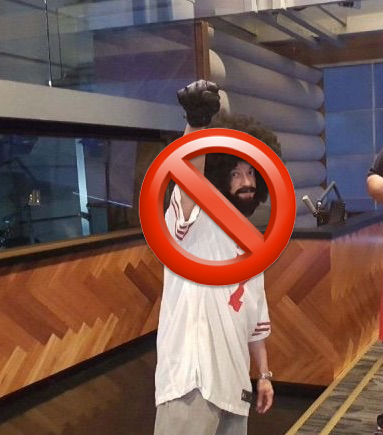
Halloween is the worst holiday of the year because it encourages white people to make terrible costume decisions. I don’t know if it’s something in the air, or maybe they’re drawing energy from the abundance of pumpkin patches around; but every single year, October 31st rolls around, and the I’m Not Racist, It’s Just A Costume crowd treats it like a free-for-all. And if I know white people like I know white people, this year will be absolutely no different.
We’re definitely going to see the corny-ass white dudes rocking unnecessary blackface to complement a LeBron James costume, even though the Cavs jersey and shooting sleeve is more than enough. We’re definitely going to see the silly-ass white women who draw teardrops under their eyes, paint THUG LIFE across their knuckles, and throw on fake gold dollar sign necklaces to complete their lazy ass “gangster” costume that fully suggests they just asked themselves “Hmmm. How do I think black people in underprivileged neighborhoods dress?” This year, we are certain to see the “Ironic” Colin Kaepernick costume. If you don’t think this picture from an unaired (THANK GOD) Jason Whitlock segment will inspire ignorance amongst the stupid, then maybe this costume that I stumbled upon will serve as proof.
Luddites Are The Working-Class Halloween Monsters We Need
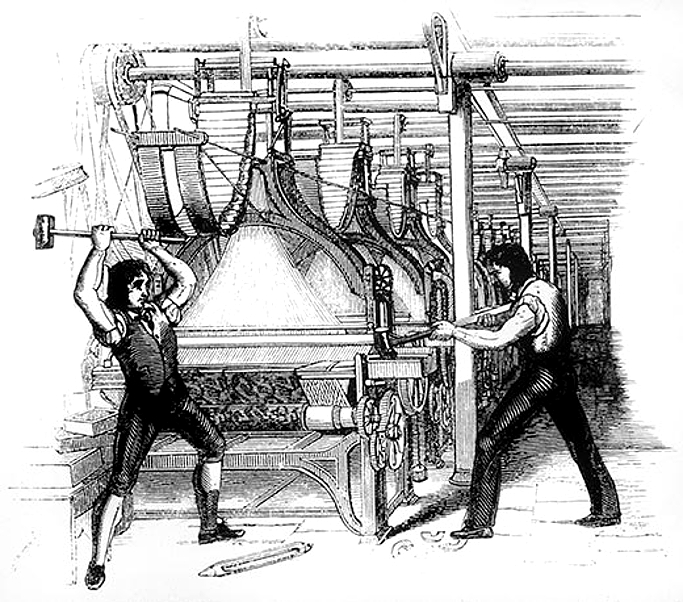
Forget the neutered idea of a Luddite as someone who avoids computers, who tells you to stop using your smartphone. The real Luddite is one erased from history. As E.P. Thompson wrote in The Making of the English Working Class, “I am seeking to rescue the poor stockinger, the Luddite cropper, the ‘obsolete’ hand-loom weaver, the ‘utopian’ artisan, and even the deluded follower of Joanna Southcutt, from the enormous condescension of history.” Luddite has long been used as a dismissive term, but there’s a subculture of history buffs who have tried to repair their memory, including one Jonathan Franzen.
The Kraus Project, Franzen’s 2013 translation of essays by Karl Kraus, the Austrian satirist, is peppered with footnotes. “Not only am I not a Luddite,” Franzen writes, “I’m not even sure the original Luddites were Luddites. (They had no systematic beef with technology; it simply seemed practical to them to smash the steam-powered looms that were putting them out of work . . . I don’t mind technology as my servant; I mind it only as my master.” He hated when “Twitter addicts” called him a Luddite. His response: “Nyah, nyah, nyah!” Which might double as a Luddite blearing at midnight. With Franzen’s blessing, or not, it’s time to return to the original spirit of the Luddite legend.

